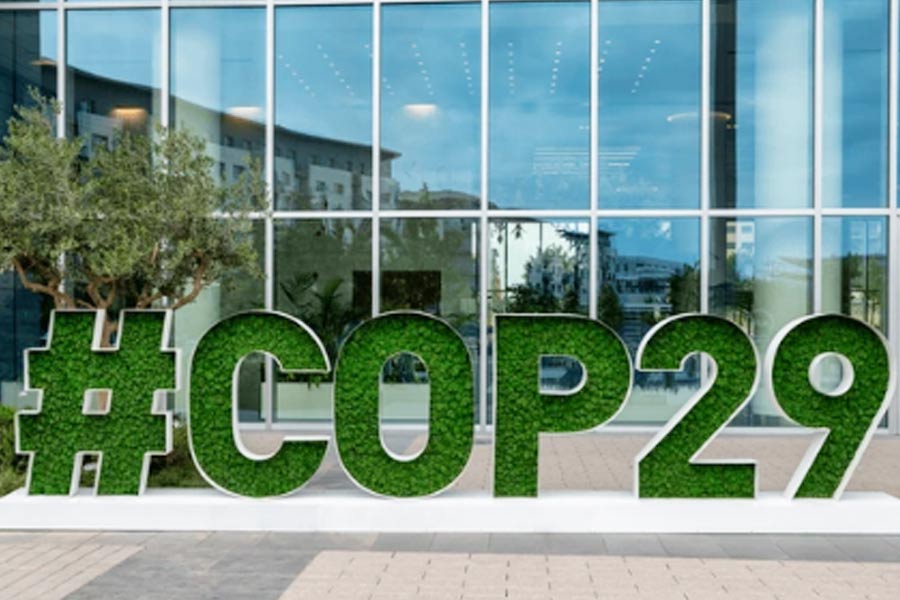A new report released by the United Nations Framework Convention on Climate Change (UNFCCC) executive secretary Simon Steil in Baku on Thursday recommended that COP29 negotiations on climate finance should focus on mobilising $1 trillion per year for developing countries by 2030, inclusive of all sources.
The report observes that almost a similar amount of climate-linked investment is required in both developed and developing countries.
Though the report’s quoted figure matches India’s official demand, it varies qualitatively as the report calls for half of the amount to come from cross-border private finance in the mix, which is different from India and civil society’s position that demands a much larger share of public finance.
“External finance from all sources, international public and private along with others, will need to cover $1 trillion per year of the total investment needed by 2030 and around $1.3 trillion by 2035,” reads the report.
“We argue that cross-border private finance can meet about half of these needs given the changing nature of investment opportunities,” says the report.
The report — Raising Ambition and Accelerating Delivery of Climate Finance — has been co-chaired by Amar Bhattacharya, Vera Songwe and Nicholas Stern, whose review triggered the global climate finance discussion in 2006.
The Stern-led research team has been supporting the deliberations on the climate finance agenda under successive COP presidencies since COP26. It has come up with three reports, including the latest, tasked by the UN to help develop and put forward policy options and recommendations to enable public and private investment and finance, linked to the Paris Agreement and following global climate agreements.
The report was published as countries negotiated at COP29 an NCQG (new collective quantified goal) for financial support for developing countries beyond 2025.
The first draft released on Wednesday has several options and figures undermining the level of discord. Countries agreed that the new goal should be set before 2025 from “a floor of $100 billion per year”.
The report warned that “any shortfall in investment before 2030 will place added pressure on the years that follow, creating a steeper and potentially more costly path to climate stability”. It added that investment needs for adaptation and resilience, as well as loss and damage and restoration of nature, will rise sharply as climate and nature risks escalate.
The report estimated “global projected investment requirement for climate action is around $6.3–6.7 trillion per year by 2030 of which $2.7–2.8 trillion is in advanced economies, $1.3-1.4 trillion in China, and $2.3–2.5 trillion” in emerging markets and developing countries other than China.
The authors point out that the figures contained in the report imply “a more than fourfold increase in total climate finance and a more than six-fold increase in external finance by 2030” to achieve the goals of the Paris Agreement.
The report concludes that “advanced economies need to demonstrate a credible commitment, including through the NCQG, to provide and mobilise the finance needed for climate action in developing countries”.
“For climate change, the private sector will have to play a role but public capital coupled with investment from multilateral development bank and philanthropic capital will be necessary,” said Vibhuti Garg, the South Asia director of the Institute for Energy Economics and Financial Analysis to The Telegraph in Baku.











